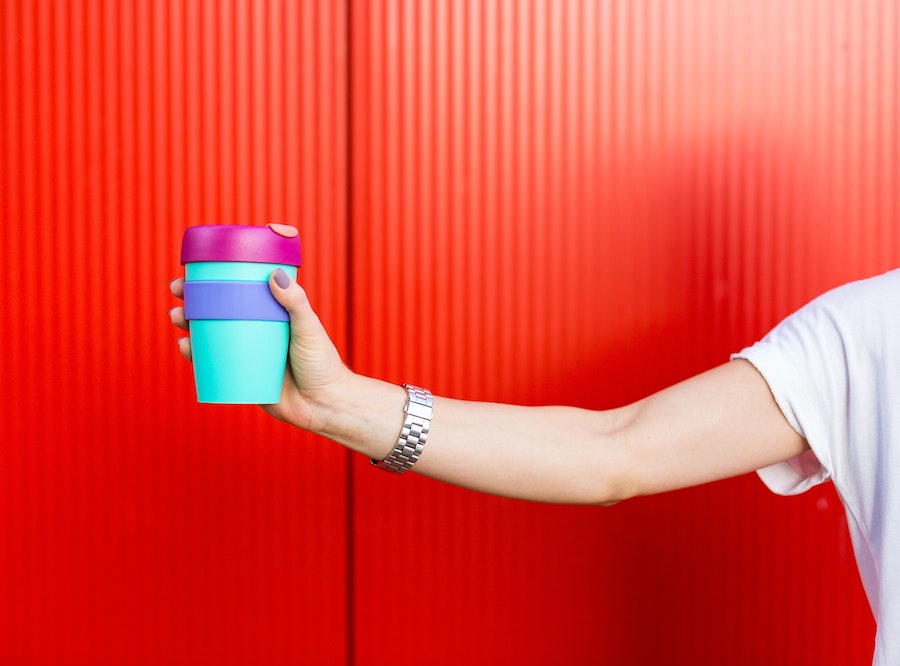7 simple habits that are good for both you and the environment
If there’s one thing we learned from Sir David Attenborough’s Blue Planet II, it’s that we’re not doing nearly enough to look after the environment.
Two-thirds of the the Great Barrier Reef has been damaged as a result of climate change, more than 14 billion pounds of toxic rubbish is dumped into the world’s ocean each year, and by 2050, scientists predict there’ll be more plastic in our seas than fish.
The outlook is certainly bleak, and it’s falling on all of us to green-up our acts and slash the amount of waste we generate.

The world is waking up to its growing plastic problem
The problem is, there are lots of misconceptions about green living, mainly that it’s expensive, inconvenient and requires you to live a nomadic existence. But in reality, it isn’t hard to be more eco-friendly – experts say helping the environment on a micro-level could be as simple as making a couple of minute lifestyle changes – and there’s a big bonus: these simple shifts could hugely improve your health too.
Here are seven simple habits, that’ll help the health of the environment as well as your own, to try today…
1. Ditch plastic bottles
If there’s one thing that’s visibly destroying the planet, it’s plastic water bottles. The average single-use bottle can take up to 1,000 years to decompose, while there are 245,000 metric tons of plastic floating on the surface of our oceans alone. As well as being damaging to marine life, studies suggest these grab-and-go options may not be great for your health either. “Substances called xenoestrogens found in plastics can mimic the hormone oestrogen and have been linked to reproductive problems and other serious health complications,” says Healthista editor, Anna Magee. While studies are yet to provide a conclusive answer, it’s cheaper and easier to avoid them altogether, so ditch the single-use bottles and opt for reusable BPA-free versions instead, such as a Brita Fill and Go Vital Bottle (£16.49, Healthista.com), which filters the water before you drink it.
2. Reduce your dairy intake

Try mixing soy milk into your coffee
3. Switch to organic skincare
“Rubbing a smooth piece of #Selenite for 5 mins will help you enter into the realm of #dreams, #intuition & #Angels, but the most common benefit is that it calms & lifts your #energy” 💖💎😍#crystals #goodvibes #aura #mindfulness #awakening #naturaldeodorant #awakeorganics pic.twitter.com/Uc0SAoygeM
— Awake Organics (@Awakeorganics) January 17, 2018
There’s a growing argument to suggest it’s worth reading the ingredients lists on the back of your beauty products, as well as those on the foods you buy. You may have noticed lately that ‘paraben-free’ labels have been popping up on toiletries. These preservatives have been used for almost 70 years and are approved for use under European legislation, but now a debate has been building among scientists and product safety regulators about whether these chemicals may be harmful to our health. Want to stay on the safe side? “Look for waterless formulas that contain organic, eco-friendly ingredients,” says Melissa Kimbell, founder of Awake Organics (awakeorganics.co.uk). “Water is precious, yet it is often used as filler in moisturisers, with just a tiny portion of hydrating oils added in at the end. I don’t use water in my formulas because it’s a waste of resources, it doesn’t nourish the skin, and water-based formulas often require harmful preservatives to keep them from going off.”
4. Grow your own veg

Get growing
Got a green thumb? Indulge it. There’s nothing more satisfying than taking a bite of your own home-grown food, aside from the knowledge that you’ve done your bit for the environment while getting your hands dirty. “So many processes go into putting food on your plate, so growing your own vegetables is the best way to help the environment,” says Harsha Rathnayake, founder of JunkHunters (junkhunters.co.uk). “Not only is freshly grown veg so much better for you, as it doesn’t contain chemical fertilisers, but you don’t even have to leave the house to feed your family.”
5. Invest in a travel mug

How many takeaway coffees do you drink?
A steaming cup of coffee in the morning is pretty much a national ritual, but your daily trek to the local coffee shop pushes up your plastic consumption with each cup. Only one in 400 coffee cups are recycled in the UK, and many can’t be due to their inner plastic coating (designed to stop the liquid making the cardboard soggy). “Coffee cups are a huge waste material, so investing in a travel cup to take with you is one of the most valuable things you can do for the environment,” says Rathnayake. They’re available at most supermarkets and can be picked up for as little as £5. Some coffee chains, like Starbucks, will even give you a discount if you provide your own mug.
6. Plan meals and shop locally
Buying out-of-season produce that have been flown halfway round the world, or wrapped in layers of plastic, hugely contributes to the problem at hand. Shopping at locally-owned businesses puts money back into the local economy, means you’re paying for less plastic and – as a bonus – your food is likely to contain less chemical pesticides. “Devise a meal plan in advance, wherever possible make extra batches and freeze for the following week,” says BBC Radio 2 presenter and natural health blogger, Janey Lee Grace. “Shop at local farmers’ markets or start a co-operative food buying scheme with neighbours or local community groups. There is a lot we can do to simply enhance our space and reap the benefits of natural solutions.”
7. Buy a bike
Did you know we’re on on #Instagram 📷📹 ! Follow us https://t.co/9YdEQAe5vM for stunning bike pics, photo and video comps, as well as just awesome cycling footage. pic.twitter.com/aX1xVXaQlb
— Cycling UK (@WeAreCyclingUK) February 10, 2018
There are plenty of reasons to get on two wheels this year: riding your bike to work can cut down on your household emissions by at least 6%, combats noise pollution, reduces traffic, and could make for a more pleasant commute. As a plus, cycling is a great aerobic activity, which means your heart, blood vessels and lungs all get a bracing workout. And next time you head to a sweaty spin session – you won’t be the worst in the class!
The Press Association
Latest posts by The Press Association (see all)
- 5 surprising things you can clean in the washing machine - January 9, 2025
- Prince William posted a heartfelt birthday message to ‘most incredible wife and mother’ - January 9, 2025
- Birthday wishes for Catherine from royal family as the Princess of Wales turns 43 - January 9, 2025
- Maple Cinnamon Granola - January 8, 2025
- 8 things your feet can tell you about your health - January 8, 2025





















